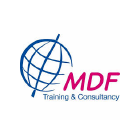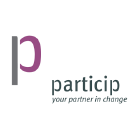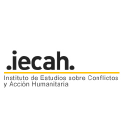WORKING WITH DG ECHO AS AN NGO PARTNER | FPA 2014 - 2020
DG ECHO STRATEGY (GGOPHA)
In line with the Lisbon Treaty, the Humanitarian Aid Regulation and the Humaniatrian Consensus on humanitarian aid, the Commission, through ECHO, is committed to delivering aid to populations affected by natural or man-made disasters solely on the basis of needs.
ECHO NEEDS ASSESSMENT
To implement its policy of assisting people with the greatest humanitarian needs and to ensure that its priorities are identified according to the principles of impartiality, neutrality and independence, ECHO has developed a two-phase framework for carrying out its needs assessments in specific countries and crises.
The first phase is a global evaluation with two dimensions:
- Index for Risk Management (INFORM) is a tool based on national indicators and data which allows for a comparative analysis of countries to identify their level of risk to humanitarian crisis and disaster. It includes three dimensions of risk: natural and man-made hazards exposure, population vulnerability and national coping capacity. The INFORM data are also used for calculating a Crisis Index that identifies countries suffering from a natural disaster and/or conflict and/or hosting a large number of uprooted people.
- The FCA or Forgotten Crisis Assessment, identifies serious humanitarian crisis situations where the affected populations do not receive enough international aid or even none at all. These crises are characterised by low media coverage, a lack of donor interest (as measured through aid per capita) and a weak political commitment to solve the crisis, resulting in an insufficient presence of humanitarian actors.
The second phase of the framework focuses on context and response analysis.
- Integrated Analysis Framework (IAF) is an in-depth assessment carried out by European Commission's humanitarian experts. It consists of a qualitative assessment of humanitarian needs per single crisis, also taking into account the population affected and foreseeable trends.
These tools are intended to identify priority countries where humanitarian needs are likely to be greatest or most neglected and where Commission aid is most necessary.
They are a common alternative reference framework used to ensure consistency in the allocation of resources among the various geographical zones according to their respective needs, to allow rapid ex post control of the allocation of resources and, finally, to ensure the credibility and transparency of the Commission’s humanitarian aid vis-à-vis the European citizen.
ANNUAL STRATEGY CONTENTS
Is on the basis of the results of these assessments that ECHO drafts the annual strategy (General Guidelines and Operational Priorities), a document issued annually with the aim to co-ordinate and program the humanitarian aid activities efficiently and impartially, according to identified priorities.
The contents of the Annual Strategy are organized around 4 chapters:
- The General Context and Outlook for the current year: defines the context and the aim of the humanitarian actions.
- Policy Priorities: defines the guiding principles and the main objectives of the EU funded humanitarian actions,
- The Operational Priorities: describes the methodology and the results of the needs assessments. This chapter contains also the Budget Planning where the general budget is allocated to each region of intervention and is earmarked on the budget lines for humanitarian aid, food aid and disaster preparedness (DIPECHO)
- Delivery coordination and controls of Humanitarian aid: describes the means and the ways of delivering humanitarian aid and the mechanism in place to ensure coordination and the exchange of information among the humanitarian actors. Furthermore it identifies the controls that will ensure the correct implementation of EU – funded operations and the mechanisms that will ensure coordination and exchange of information during the crisis response.
REFERENCES & USEFUL LINKS





